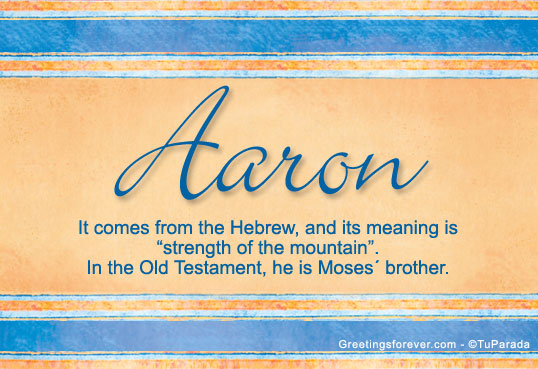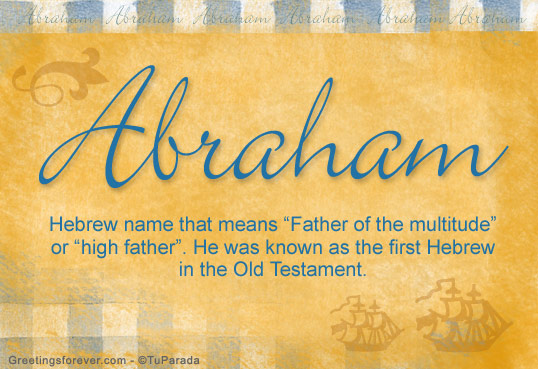https://dmnes.wordpress.com/2016/01/20/protestant-names-old-testament-influences-on-mens-names-part-1/
Having looked at women’s names from the Old Testament in the DMNES researchers' previous post, in this one they turn to the men!

Except, first, the rectification of an omission — because they forgot a rather important name in their previous post! She’s a Hebrew girl turned Persian princess, she’s the cause of one of the most important Jewish festivals, she’s the eponymous character of one of the OT books…how could we forget to mention Esther? Spelled Esther, Ester, Hesther, or Hester, the name sprang into popularity in England and amongst Dutch and French Protestants in the second half of the 16th C, being virtually unknown in other linguistic, geographic, and temporal contexts. We have quite a large number of citations, but the entry for the name is not yet ready for publication because the etymology of the name is proving difficult to ascertain. There are plenty of theories — from the Median word astra meaning ‘myrtle’, from the Latin word astra meaning ‘star’, or related to the goddess name Ishtar, ultimately deriving from a root meaning ‘star’ — but we prefer good hard evidence rather than speculation when we can get it. Sometimes, though, conclusive data cannot be found, and we may simply end up having to present what information we have, and its relative merits. I suspect that it will be awhile before we have a satisfactory solution for this name.
Digression aside, let’s look at the men’s names drawn from the Old Testament! There are so many of them, the onomasts are going to have to slit this up into multiple Posts.
Aaron: The name of the brother of Moses and the first high priest, this name is curious because it doesn’t provide much evidence for the “Old Testament names became more co
 mmon in the second half of the 16th C” hypothesis — not because it was already in use before then, but because, unlike so many other OT names, it never became common. We have two 16th C English examples and one from the Protestant Church in Caen, but this name was nowhere near as popular as some of the other more “mainstream” OT names. It was occasionally used in England, and elsewhere, earlier, but often by Jews rather than Christians. One exception to this is Wales, where the form Aron was not uncommon in the 15th C. The cause of this is unknown.
mmon in the second half of the 16th C” hypothesis — not because it was already in use before then, but because, unlike so many other OT names, it never became common. We have two 16th C English examples and one from the Protestant Church in Caen, but this name was nowhere near as popular as some of the other more “mainstream” OT names. It was occasionally used in England, and elsewhere, earlier, but often by Jews rather than Christians. One exception to this is Wales, where the form Aron was not uncommon in the 15th C. The cause of this is unknown.Abednego (entry available in next edition): The name of one of the three brothers thrown into the fiery furnace in the book of Daniel (his brothers’ names show up further down in the list!). When we first found the name Abdenago in France in 1565, given the context and the spelling our first thought was of Abednego, but the difference between bed and den seemed difficult to explain — until a bit of sleuthing revealed that in the Wycliffite translation of 1395, the Middle English form of the name was Abdenago. We are not sure when the den form switched to the bed form in English, but this is one of the questions that our investigations into early vernacular translations of the Bible will hopefully illuminate!
 Abraham: The name of the patriarch of Israel, this name can be found as far afield as Hungary, yet it was always rare in France before the 16th C, and almost unheard of in England or the Low Countries before then.
Abraham: The name of the patriarch of Israel, this name can be found as far afield as Hungary, yet it was always rare in France before the 16th C, and almost unheard of in England or the Low Countries before then.Absalom: The name of the son of king David, this name is a curiosity as the only Protestant uptake of it that we have evidence for is in France; yet, the name was used sporadically before the 16th C across Europe, with most examples found in the 12th-14th C.
Adam: Like the name of his wife (see previous post), Adam was commonly in use throughout Europe before the Reformation. There is little need to explain the universal popularity of this choice!
Adiel: You can be forgiven for not recognizing this name, it was borne by a handful of unremarkable characters recorded in 1 Chronicles (27:25 4:36; and 9:12). The Adiel recorded in London in 1593 can be nothing other than a witness to the Protestant penchant for indiscriminate choice. Obscurity is not an issue, here!
Balthasar: Better known as one of the names of the three wisemen, Balthasar was common outside of England, France, and the Low Countries prior to the 16th C (often in conjunction with forms of
Casper and Melchior — either two or three brothers with these names, or father/son(s) pairs), within our area of focus, there is a clear jump in the uptake of this name in the second half of the 16th C.
Benjamin: While our data doesn’t yet reflect this, the name Benjamin was in use in England througout the Middle Ages, albeit sporadically. It was popular enough to give rise to a surname found as early as the 12th C [1]. Outside of the second half of the 16th, the name was rare throughout Europe.
Caleb: The name of a minor character, this name was rarely used in 16th C England.
David: The name of one of the most important Biblical kings, David can be found quite early throughout Europe in ecclesiastical contexts; the popularity of the 7th C Saint David in Wales is the reason for the popularity of the name in Wales throughout the Middle Ages, and as the name of two kings of Scotland, its use there was also assured. The name was spread widely throughout Europe; this name’s use in the 16th C cannot be attributed exclusively to Protestant influences.
Daniel: The case of this name of an eponymous character of one of the prophetic books is similar to that of David, though here it is clearer that its popularity in England certainly increased in the second half of the 16th C.
Eleazar: This name could be classified as either an OT name (in this form) or a NT name (in the Latinized form Lazarus). While Lazarus and variants are not uncommon in Italy, the specific OT-influenced form Eleazar shows its face in England and France in the second half of the 16th C (the two 12th C instances in the Dictionary are from records relating to the Crusades in the Holy Land, and may be the names of Jews).
Elias: Elias (this spelling reflecting the influence of Greek) was one of the most popular Biblical names in the Middle Ages [2]. We cannot look to the use of this name as evidence for a Protestant pattern, but we can look to something more nuanced: In the 17th C, the spelling Elijah became specifically taken up by the Puritans in England (and the New World) [2]. We have yet to see an example of this spelling in the pre-1600 scope of the Dictionary.
Enoch: The name of an ancestor of Noah who walked with God and “then he was not”: He was taken up to heaven without ever having suffered earthly death. We have one example of it, from the Dutch Reformed Church in 1589.
Ezekiel: The name of a Biblical prophet, we have one example of this from the Protestant Church at Caen in 1561.

The remainder of the alphabet will be covered in future posts, but what we can see from these names alone is that the correlation between the use of OT names and Protestant influences is much lower among men’s names than among women’s names. However, if we look beyond the names of well-known, popular Biblical characters, like Adam, David, Elias etc., it is clear that there is a correlation between the use of obscure Old Testament names and English, Dutch, and French contexts from the second half of the 16th C.
References
[1] Reaney & Wilson, A Dictionary of English Surnames, s.n. Benjamin.
[2] Withycombe, Oxford Dictionary of English Christian Names, s.n. Elias.
No comments:
Post a Comment